2019 is drawing to a close which means critics everywhere are drafting their lists of the best, and worst, of the decade. As some of you may know Thad, Kara, and I host a little podcast called Beneath the Screen of the Ultra-Critics in which we ramble on about one random topic film-related or another. We’ve been tasked by the editors to toss our hat into the feral ring of “Best and Worst of the Decade”. We’ve split the list into two. The Worst was published yesterday- now it’s time for The Best.
But before we start I feel it is important to set out certain facts about how the list was curated.
The list was compiled by the three of us from a massive list of movies we have seen, remembered, and some even forgotten. Each movie required at least a two-thirds majority to make it on the final list. Additionally, we left off most foreign and obscure films, to make the list more accessible.
Great movies need not be perfect to be great. Sometimes greatness comes from the audacity rather than its perfection. At the same time just because the movies are numbered does not mean they are ranked, save for the number one film. These are ten of the best movies of the decade. By no means is list definitive in fact since we’ve voted on the list my mind has changed three or five times but the vote is in and there’s no going back. In other words, it’s a list people, not sacred doctrine.
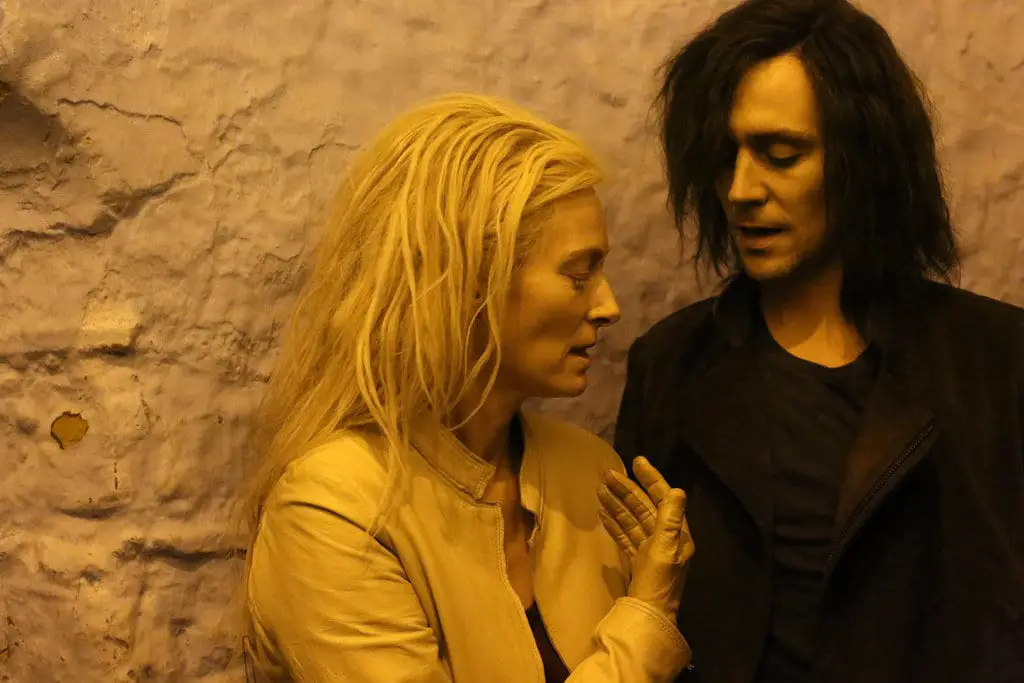
10. Only Lovers Left Alive (2013) – Kara
It’s very dangerous to watch a movie about being in love when you are falling in love. Years later you may be asked to pick some of your favorite movies of the decade, and you’ll become belligerently attached to the film and then need to write about it.
Tom Hiddleson plays Adam, a somewhat self-indulgent and depressed vampire musician living on the edge of the worst of the decay of Detroit, making beautiful, strange music only on vinyl, living alone in a dilapidated Victorian house. When he’s informed there are fans of his music, he is shocked and horrified. His wife, Eve also a vampire, played with humble grace by Tilda Swinton, lives in Tangier, is thrilled with the poetry of living, spending time with her friend, Christopher Marlowe.
The physical distance between them is meaningless. You’re always in love wherever you are. He eschews human contact and tinkers with strange inventions, she lives in the heart of a city and FaceTimes him on her iPhone. Seeing his distress, she immediately flies to him, packing a small suitcase filled only with books, after she lovingly runs her fingers down every page. They are both dependent on doctors for blood, alluding to the fact that humans have somehow “poisoned” themselves. The plot truly isn’t very important to director Jim Jarmusch. Watching the characters exist, listening to the soundtrack, that’s the important part.

9. The Guest (2014) – Thad
God, I love Dan Stevens. Have you seen Legion? You should watch it. But nevermind that. What if your memory of everything you love about ‘70s/’80s John Carpenter movies made a movie in 2014 with a great soundtrack and a charming cast about a mysterious dude who shows up to connect with his dead soldier buddy’s family but was also a secret super-soldier who solves literally all problems with murder, seemingly whether he wants to or not.
Adam Wingard’s The Guest is not flashy. It is confident. It is simple. It is fun.
It’s a monkey’s paw of a tale, going from the visceral joy of bullies getting an intense-but-deserved comeuppance to the dawning horror of what violence unleashed can ultimately cost. A theme we don’t get enough, I’d say. I think it’s what Incredible Hulk stories are supposed to be about? But those are usually more about monster punching and sad man-pain. The Guest is something else. A slick fable about being careful what you wish for and also maybe listening to young women when they tell you they have a bad feeling about somebody.
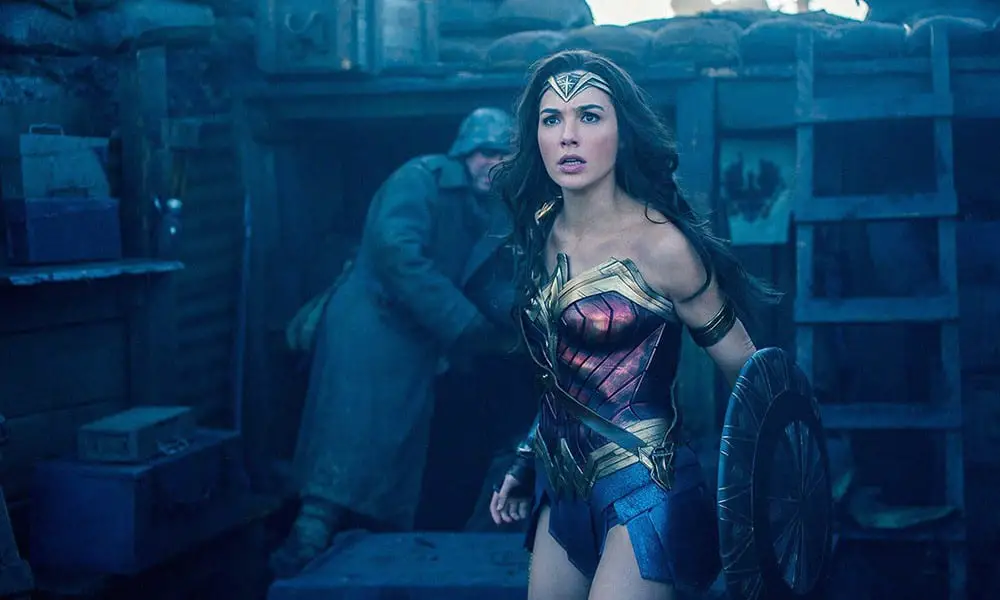
8. Wonder Woman (2017) – Jeremiah
In my original review of Patty Jenkins’ Wonder Woman, I called it a new blueprint for comic book films. Sadly, it was not. In the years after Wonder Woman, its strengths have only grown stronger and it’s weaknesses only weaker while it’s genre brethren merely remained static growing only in length, explosions, and cast size while losing all imagination, backbone, and style.
Gal Gadot embodies Princess Diana of Themyscria in much the same way Christopher Reeve embodies Superman, effortlessly. The romance between Diana and Steve Trevor (Chris Pine) never felt rushed or forced, it blossomed like something out of a classic movie. Superhero movies are often loud but rarely do we get to see people just fall in love amidst the bombs and intergalactic invasions.
Jenkins and her writer Allan Heinberg dared to make Wonder Woman about more than one thing; from racism to fascism they took it all on happily. Of all the tent pole franchise movies released in the last decade, it is a film, and less like a televised serial with a video game shoved into the middle of it. Wonder Woman is the rare comic book film that doesn’t leave you after the lights go up.
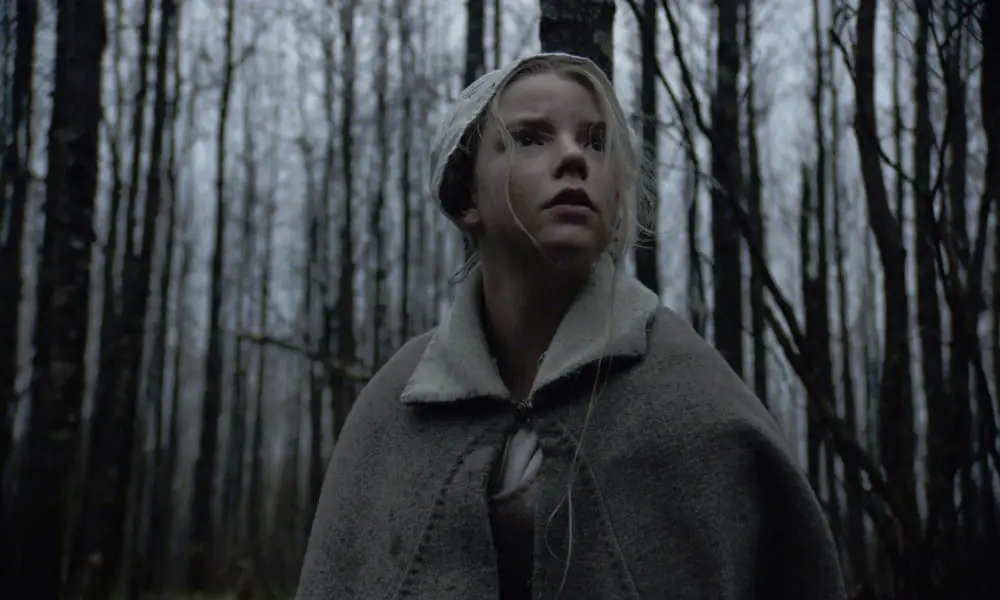
7. The VVitch (2015) – Thad
I didn’t have much of a history with folk horror before I saw writer/director Roger Eggers’s The VVitch. And to be honest, I’m not sure if it is even actually part of that tradition or if it is its own thing. There’s a kind of camp to that genre and it’s ‘60s/’70s roots that are utterly absent here. The only other thing I have to compare it to off the top of my head is 2018’s The Wind, another realism-drenched period piece that uses the supernatural to explore themes of isolation, loss, paranoia, and the lives of women.
The characters in are both are arch and specific to themselves in a way I’m still transfixed by. For a movie that leaves me uncertain as to the reality of anything experienced by the characters within it, it feels so damn earnest and grounded. Like you can smell the farm air mixture of manure and livestock and growing/decaying plant life. Everyone in the small cast is great, but the standouts are Anya Taylor-Joy as protagonist Thomasin, whose perspective and emotional journey we are largely tied to, and Ralph Ineson as William, whose failings drive the family to the isolation that begins the story.
This is a film crafted with obsessive care that it still startling nearly half a decade later and will still startle me in years ahead. I can’t believe I haven’t seen The Lighthouse yet. I don’t know if it will be as good, but mostly I’m just interested in seeing what Eggers does next.
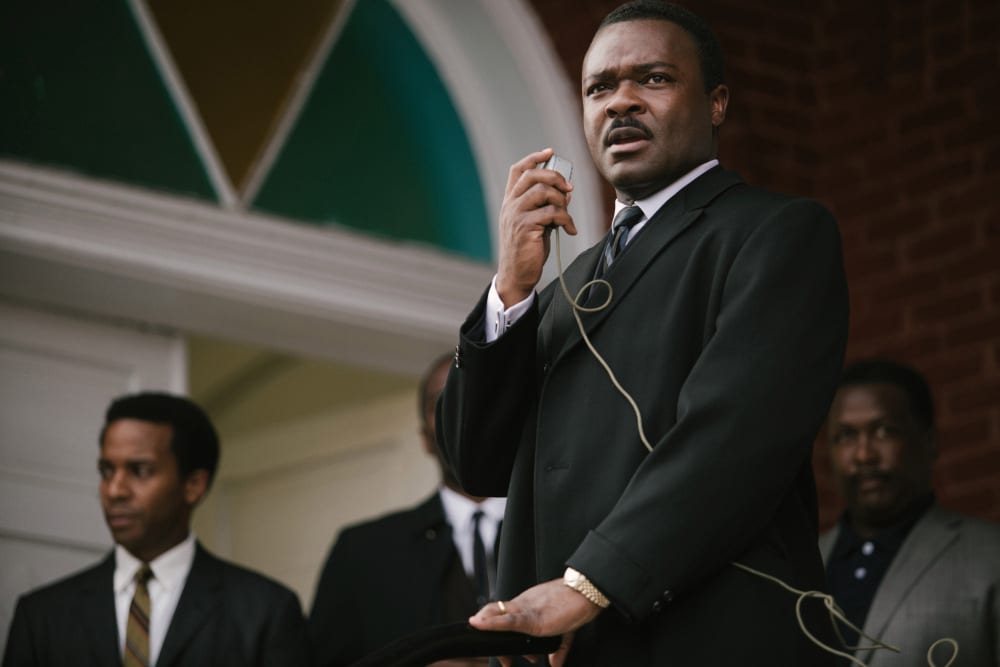
6. Selma (2014) – Jeremiah
Ava DuVernay’s second film Selma, a biopic about Martin Luter King, Jr. (David Oyelowo) remains the first and only film about the civil rights leader. Were it just a biography the film would still be on a list but its stubborn insistence to be so much more is why it is on this list. More than a mere biography DuVernay has made a visual manual on how to organize and protest while also telling a patchwork of stories about different people involved in the struggles to change the course of U.S, history.
At the time of its release, Selma was criticized for its unflattering portrayal of president Lyndon Johnson (Tom Wilkinson) and charged with playing fast and loose with the facts. Nevermind that films about historic figures or moments in history are rarely been historically accurate, Selma seemed to be held, shocking no one, to a higher standard. Yet, as time has passed we have come to see DuVernay’s sophomore effort as one of the few and most startling honest depictions of a historical figure and events ever portrayed onscreen.
But even more than that DuVernay and her screenwriter Paul Webb look at King the man as opposed to King the myth. The film was so honest about King that King’s own family barred DuVernay and Webb from using King’s speeches for the film and that’s with Oprah as one of the producers. The result is a powerful emotionally and factually brutally honest film, shot by Bradford Young, lending the honesty a sheen of lyricism which highlights rather than polishes the grim realities of our past.
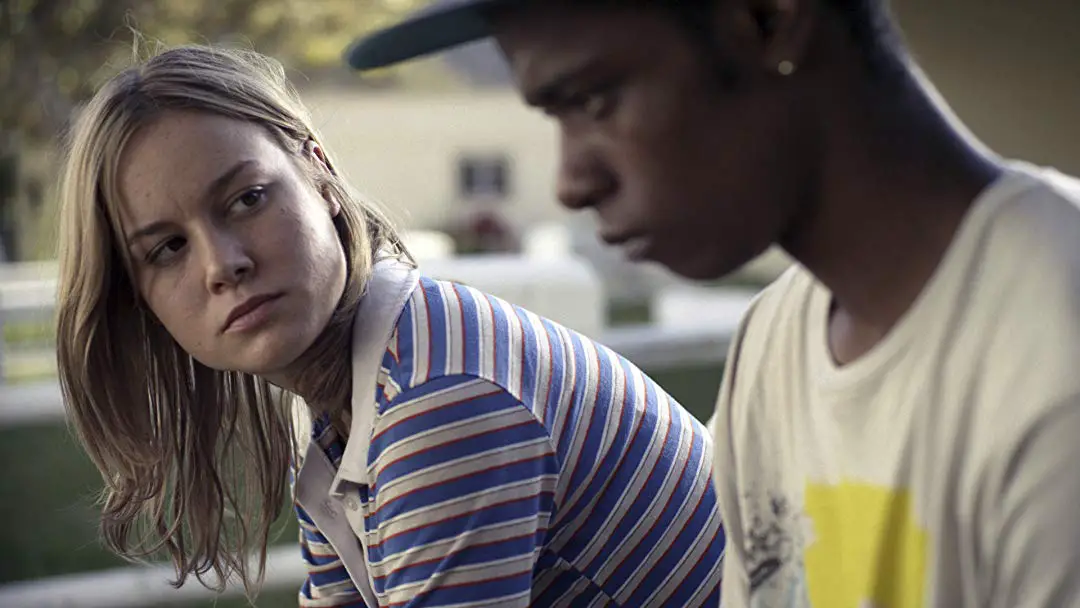
5. Short Term 12 (2013) – Kara
Destin Daniel Cretton’s Short Term 12 is a little movie. I don’t mean that in a demeaning or diminutive way; it’s a film about people, adults and children, and their lives. It doesn’t cultivate excessive drama, the camera doesn’t frantically bounce around, the soundtrack never overwhelms the scenes on the screen. This film is about a care institution for disturbed teenagers, a mix between a group home, a mental health ward, and juvie, and one of the women, Grace (Brie Larson) that works in the house.
I don’t think that a one-for-one recreation of a real-life scenario is necessary in order for a film to say something important, but this film does exactly nail what a place like Short Term 12 is like. And that impressed me. A scene at the beginning shows a hopeless awkward Nate (Rami Malek) state that he wants to work with “underprivileged children”, and he is immediately confronted by one of the kids in the program about what, exactly, he means by that. This movie is not fucking around with savior nonsense, and it tells you right from the beginning.
Larson’s Grace is a practical, intelligent, compassionate, and no-nonsense; not a motherly figure, but a safe older sister or cousin. “We are here to create a safe environment”, she tells Nate, with both resignation, irony, and sincerity. Her own history of abuse helps her reach out to the kids that she works with while pushing away her partner, Mason (John Gallagher Jr), a former foster kid himself, who is desperate to have her let him in on her inner life. Her surprise pregnancy throws her into crisis, along with the arrival of a troubled angry girl, Jayden (Kaitlyn Dever), that reminds her of herself.
Short Term 12 is not a feel-good movie about everything turning out great. It is a film about how, sometimes, with a lot of work, some good people in your life, and luck, things can start to be okay. It is a movie we desperately need more of.
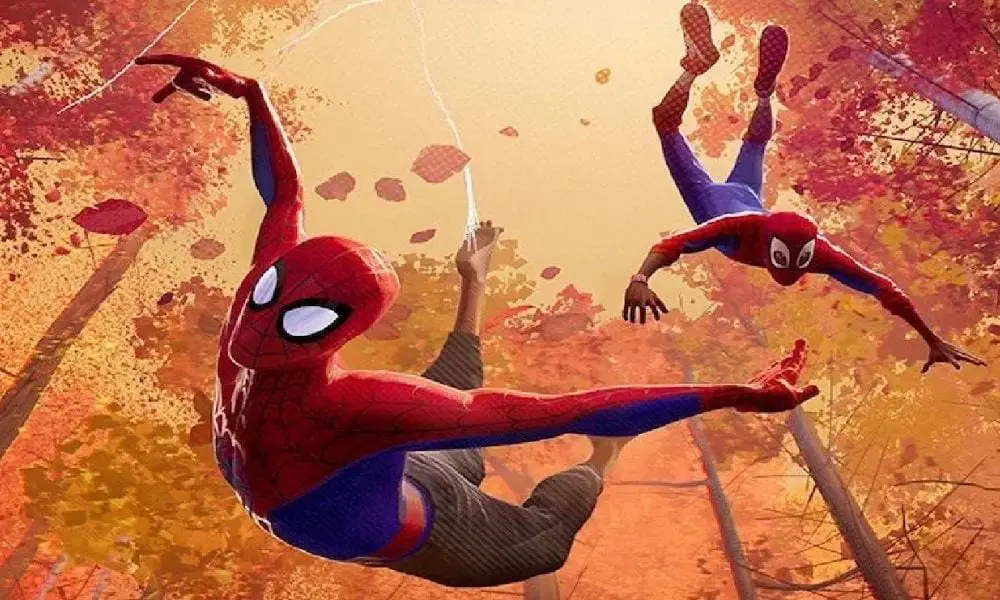
4. Spider-Man: Into the Spider-Verse (2018) – Thad
The best Spider-Man movie since Spider-Man 2. Look, I like Tom Holland’s Spider-Man well enough but he’s never been in a movie about Spider-Man. He’s been in movies about Tony Stark that just have Spider-Man’s name on the door. Okay, that’s not fair, but among the many achievements of Spider-Man: Into the Spider-Verse (and to a lesser but still relevant extent, Venom), one that feels underappreciated in our cinematic universe choked landscape is the joy of a stand-alone superhero movie.
You don’t need to know anything coming in the door except how to have a good time. It suggests a larger, complete-feeling world not through vague nods to prior and soon to be released shared universe films, but through confident storytelling and character work and style.
Into the Spider-Verse tells an all-ages story that doesn’t talk down to anyone and can be thoroughly enjoyed regardless of age, no turning off your brain required (Lookout Pixar, here comes the Spider-Man!). Its visual flair is unmatched in the superhero genre. It is a Comic Book Movie in a way that is largely ignored by its brethren: comic book pages brought to life, stylized and lively and utterly unreal while still absolutely resonant. The best superhero movie, in a decade overstuffed with them. And it is great for all the reasons Spider-Man was great in the ‘60s, only for now and maybe more so.
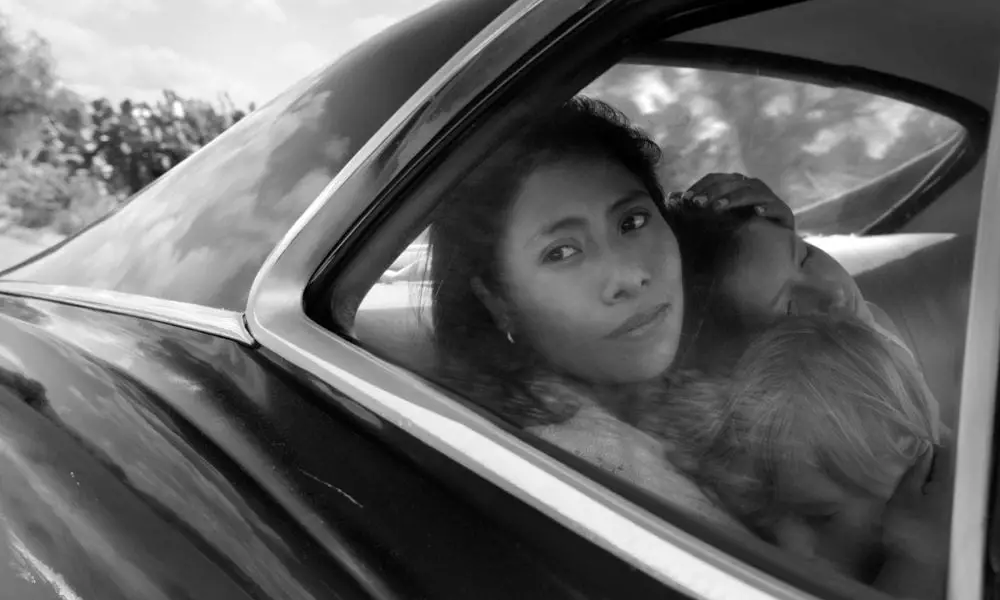
3. Roma (2018) – Jeremiah
Roma is less a movie than a cinematic miracle. An epic of sweeping documentarian scope yet told through an intimately personal lens. It is one of the few movies to leave me, and I’m not being hyperbolic here, breathless. It is a stunning achievement of both craftmanship and of baring one’s soul.
Alfonso Cuaron tells the story of Cleo (Yalitza Aparicio) a housemaid as she lives a life of quiet desperation. Based on the memories of a nanny he had himself when he and his family lived in Mexico as a child, Roma is a love letter to the woman, his country and his youth. That Roma also serves as a historical document of Mexico both politically and artistically, is part of why the film so feels so massive in scope yet so emotionally personal.
Shot, edited, written, produced, and directed by Cuaron, Roma stands as a staggering work of an auteur in an era in which the term “film by committee” has taken on a literal meaning as opposed to a metaphorical description. I can remember vividly grasping the arms of my seats as the waves splashed against Cleo as she tried to rescue the kids from the pull of the tide, all the while silently begging Cuaron not to let anything happen to her, for I could not bear it. Roma showed us that streaming need not be the end of the art but merely a new avenue for which the adventurous artists could explore.
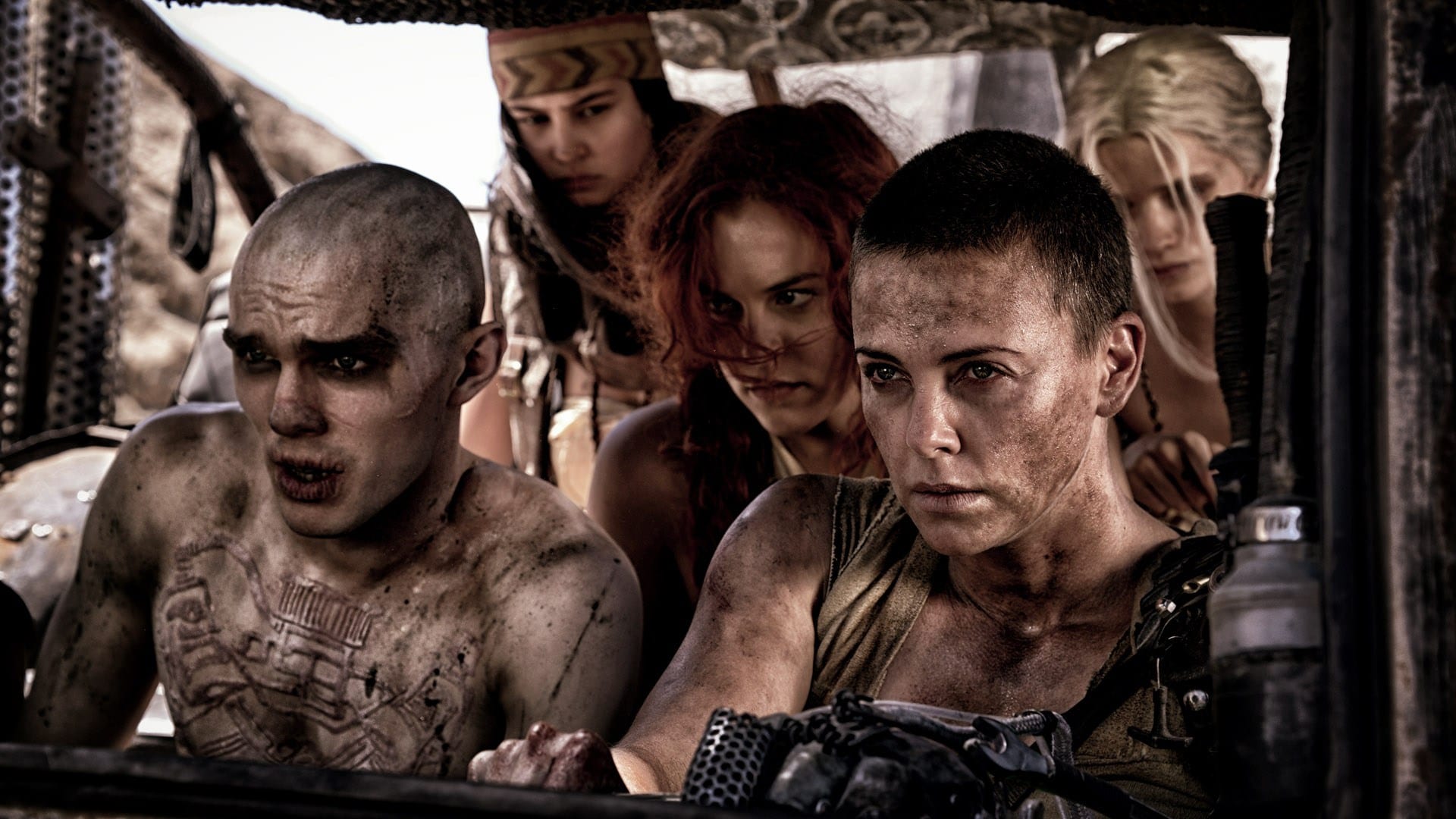
2. Mad Max: Fury Road (2015) – Kara
George Miller’s Mad Max: Fury Road is also an openly, even aggressively, feminist movie (to be fair, it’s also a very white movie, one of the few critiques of the film that stands up to scrutiny). Our wanderer, Max ( Tom Hardy), who somehow evokes Mel Gibson without impersonating him, is captured by a cult, lead by the Dictator Immortan Joe (Hugh Keays-Byrne) who rules over his white-painted War Boys. Joe’s trusted Imperator, the one-armed Furiosa (Charlize Theron) betrays him, taking his beautiful, sheltered wives to a better world, but one, as she puts it where “everything hurts”. The five young wives each have distinct personalities (and hair color) and blossom over the course of the film. And how does Max fit in? He’s around.
Fury Road is an absolute blast, but the special effects deserve their time too. The costume and makeup is perfect, especially for Immortan Joe and the eerie white Warboys. The practical effects are genius, as stuntmen drive exploding cars with trebuchets, and also as simple as a blue filter to indicate night. CGI is used sparingly and thoughtfully, as a giant, electric sandstorm in the first act bears down on the heroes–and the enemies chasing them.
At its heart, Fury Road is a kind of feminine story. Feminine stories can be violent, but each moment that the characters grow is when they come together, sacrifice for each other, trust each other, and reach out to each other. Only through helping others are we human, and sometimes, that does mean you are going to drive an exploding semi-truck into a man named Rictus Erectus. Such is life.
The Best Movie of the Decade
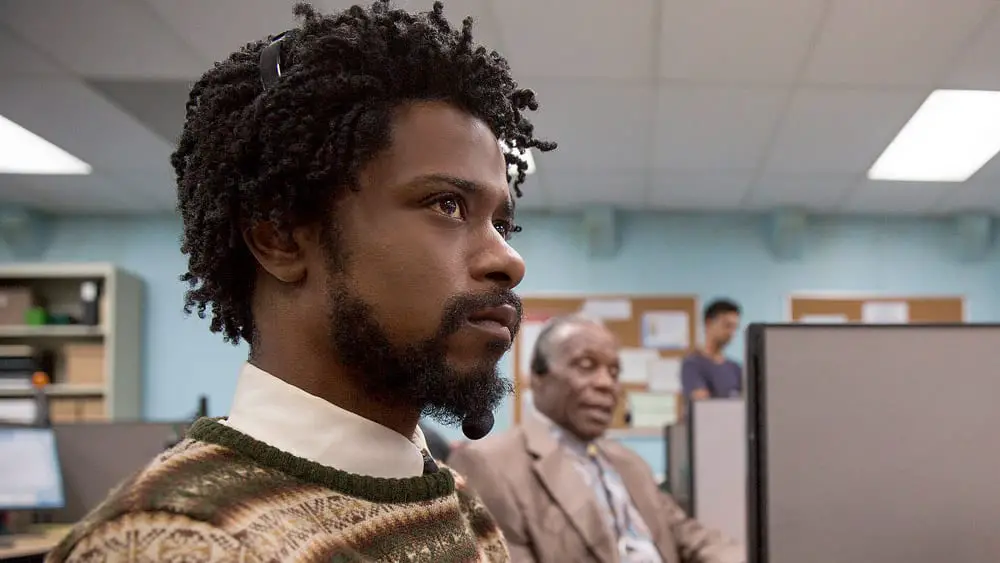
Sorry to Bother You (2018)
Jeremiah:
Few films are so unapologetic and in your face quite like Boots Riley’s Sorry to Bother You. With so many younger critics, and audience members, refusing to engage politically with the art they are consuming, Riley all but demanded they engage with his anger and social critiques or else have nothing to talk about. It is a shot across a bow from a brave new voice who seems to have little care for what is popular or comfortable.
Cassius (Lakieth Stanfield) is an everyman who finds himself leading a revolution even though he initially has no desire to do anything except make money. Riley’s satire seems less outlandish and instead borderline prescient. The world-dominating corporation of WorryFree is a clear allusion to Amazon. More than that though it’s an attempt to radicalize an audience who often feels overwhelmed into apathy.
Kara:
Sorry to Bother You is what happens when Office Space meets The Running Man and has a lot of stuff to say about the socio-political world that we live in. This is a movie that was too good to be made, too strange to be seen, too biting to play in theaters. And yet it did, and it’s amazing.
The film starts as Cassius “Cash” Green, a young black man in modern-day California living in his uncle’s garage, is desperate for money. His girlfriend, Detroit (Tessa Thompson), is an artist, and cares deeply about art, but not much about money. Cash, in desperation, takes a soul-sucking job as a telemarketer. (Disclaimer: I’ve worked Collections, and this film hits real close to home, at several places.)
When you walk out of a movie and say, “what the fuck just happened, what the fuck did I just see” that’s not usually a good sign. Here, it is a very good sign. Go see it, don’t read a synopsis or review, let the story take you where it takes you and experiences it as truly as you can. Then watch that shit again. Then listen to the album Sorry to Bother You, which came out in 2012, when he had the first draft of the screenplay written. Then think about community organization.
Thad:
I 100% get why writer/director Boots Riley wasn’t sure he’d ever get this movie made. Its politics are unapologetically leftist in a way you just don’t see on this level. The carrot and stick of capitalism dissected from the perspective of those so often exploited and marginalized by it. A passion project political manifesto fever dream without the confusion that the phrase “fever dream” would seem to seems to imply. Dreamlike yet utterly sensical. My favorite examination/excoriation of The American Dream since Verhoeven’s RoboCop.
Sorry to Bother You is also where I really started paying attention to Lakeith Stanfield and I was immediately embarrassed that I hadn’t been before. I’m sure Jeremiah & Kara have the unabashed greatness of Tessa Thompson covered, but there is an understated personal magnetism that Stanfield brings to his roles that I always want to see more of. Thinking back to his small but crucial role in Jordan Peele’s Get Out I can’t help but be shaken by what this dude can accomplish with just his eyes. He’s something of a beleaguered everyman & screw-up here, but the kind that (as cheesy as it sounds) you really cannot help but root for as he makes the wrong decisions for understandable-but-bad reasons.
Watch this movie. It is the Best.

